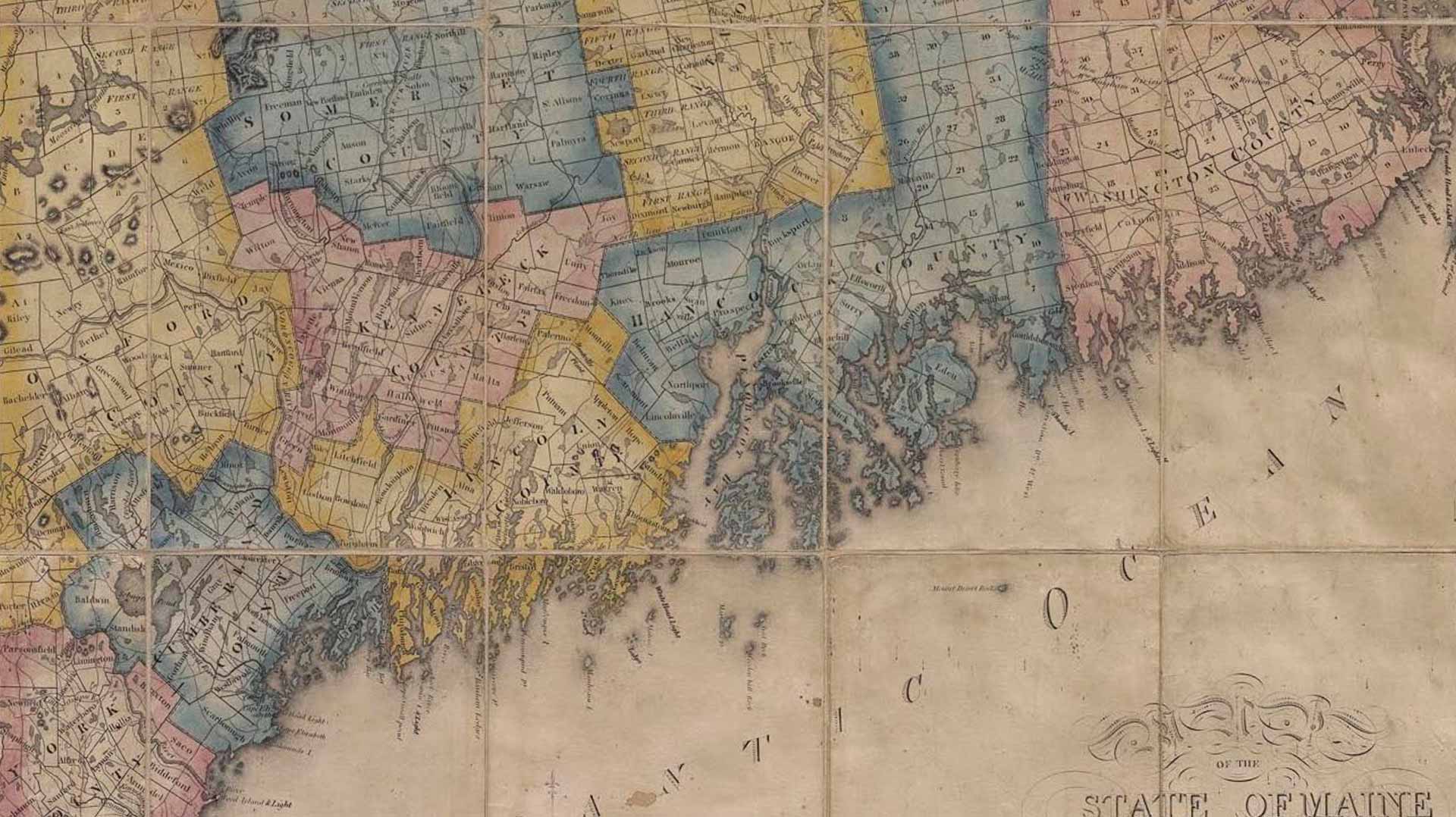Coordinator, Maine Prisoner Advocacy Coalition
she/her
Wendy Allen is a 45 year woman who battled Substance Use Disorder and is in long term recovery. She is formerly incarcerated, and is living proof that recovery is possible. She currently holds many hats in the community. She is a grant writer and coordinator with Maine Prisoner Advocacy Coalition, the Young Adult Diversion Program lead for Restorative Justice Institute of Maine, a Recovery and Re-entry Coach, as well as a Peer Support Specialist for Penobscot Family Recovery Court with Maine Prisoner Re-entry Network. She recovers loud for those suffering in silence. She is a wife, mother and grandmother that enjoys music, crafting and spending time with her family.
Wendy is also a Facilitator for Maine Humanities Discussion Projects and winner of the 2022 Maine Humanities Facilitator Prize.
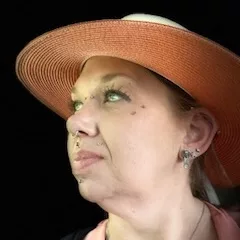
Talks
Dare to Dream
This presentation is focused on Substance Use Disorder and Allen’s heart wrenching journey battling this disease, what led up to it, and how she has sustained a life in recovery. This is an eye opening presentation around the affects of internal and external stigma, how SUD affects one’s thinking, actions and behaviors, and the struggles to survive while living a life in darkness.
This is a “through the lens” presentation that educates communities on the often unspoken truth of a person suffering with SUD, how families and communities are affected, what helps and hurts the one suffering, and how they think and feel before, during and after active use. It touches on how her incarceration and substance use affected her children, and sheds light on how easily this disease can destroy a life and the beauty of recovery.
Substance Use Disorder is taking the lives of our people every day. This strong presentation proves that recovery is possible, if they only dared to dream.
Founder and Director, Franco-American Women’s Institute
she/her/elle
Rhea Côté Robbins was brought up bilingually in a Franco-American neighborhood in Waterville known as the South End. Côté Robbins is the author of creative nonfiction, memoirs titled, ‘down the Plains,’ and Wednesday’s Child, winner of the Maine Writers and Publishers Alliance Chapbook Award.
She is editor of Canuck and Other Stories, an anthology of translations of early 20th century Franco-American women writers who wrote about their immigration experience. Her poems and essays have appeared in many publications. She is the founder and director of the Franco-American Women’s Institute, FAWI.
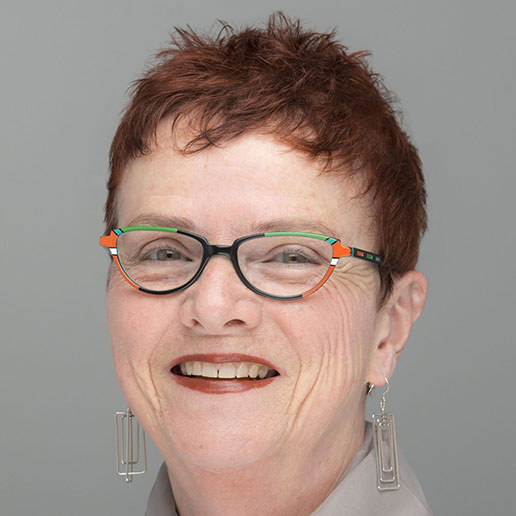
Talks
Who Gets To Tell Story?
Telling or hearing story while conscious of the human ecology—listening to story justly with social consciousness of equality. I would like to define what qualifies as “story.” I believe essentially that every person, artifact, ritual, etc. is story. Everything we know comes to us via story; we are surrounded by story. Story is the microcosm of the macrocosm. Who, in the cultural milieu, gets to tell story?
Where Are the Franco-American Women in Your Community?
Using a Franco-American woman’s search and research as a model to address the issue of what, if any Franco-American woman wanted to know about Franco-American women and their history, where would they begin if they were not told or not allowed to know and value the contributions of the Franco-American women’s history? Who are the Franco-American women in the state of Maine in regard to the history of ethnic populations? What makes the Franco-American culture worth the focus in regard to ethnic diversity? The answers to these questions remain unknown in the history of Maine. Deeper review of the lives of the Franco-Americans, present and past, reflects this hidden history.
Franco-American Women, Suffrage and Political Activity
What was Camille Lessard Bissonnette doing to promote women’s suffrage in 1910-1911, and what barriers did she face? What was happening across the border in the QC/Canadian women’s suffrage movement, which started in 1912? And who were the Franco-American women of Maine who served in the Maine State Legislature starting in 1935? The lives of these women illustrate the history of women’s suffrage here, connects the present, and helps us understand how we got here.
President, Khmer Maine
he/him
Marpheen Chann is an author, thinker, advocate, and speaker on social justice, equity, and inclusion.
As a gay, first-generation Asian American born in California to a Cambodian refugee family and later adopted by an evangelical, white working-class family in Maine, Marpheen uses a mix of humor and storytelling to help people view topics such as diveristy, equity, inclusion, belonging, and justice through an intersectional and empathetic lens.
Marpheen Chann lives in Portland, Maine. He works in the nonprofit and advocacy sector and holds a bachelor’s degree in Political Science from the University of Southern Maine and a law degree from the University of Maine School of Law.

Talks
Welcome Home: My Journey Through Foster Care, Coming Out, and Reuniting with Family
Life is complicated and full of twists and turns. In “Welcome Home,” Marpheen shares his insights, lessons learned, and maybe a few laughs as he shares his story as a second-generation Cambodian American who went through foster care and adoption, struggled with fitting in and adapting to a white-majority community, and coming out as gay to his devoutly religious family.
The Empathy Effect: How to Have Conversations That Lead to Change
In a time of great division and anger nationwide, how do we go about changing hearts and minds when it comes to issues like diversity, inclusion, and equity? In a 40 minute presentation followed by Q+A discussion, Maine politician, author and civil rights advocate Marpheen Chann shares his personal story of growing up in Maine, coming out to his religious adoptive family, and the lessons he’s learned about how change can happen.
Moon in Full: A Modern-Day Coming-of-Age Book Talk
Moon in Full, a contemporary coming-of-age story, shines light on one young man’s search for truth and compassion in a complicated era as it unwinds the deep-seated challenges we all face finding our authentic voice and true identities. Author Marpheen Chann’s heart-warming journey weaves through housing projects and foster homes; into houses of worship and across college campuses; and playing out in working-class Maine where he struggles to find his place. Adopted into in a majority white community, Chann must reconcile his fears and secret longings as a young gay man with the devoutly religious beliefs of his new family. Chann, a second-generation Asian American, recounts what he has learned, what he has lost, and what he has found during his evolution from a hungry refugee’s son to religious youth to advocate for acceptance and equality.
Associate Professor of Africana Studies
she/her
Judith Casselberry is Associate Professor of Africana Studies at Bowdoin College. Her teaching and research focuses on Black American religious and cultural studies, social movements, and Black intellectual thought with particular attention to gender and liberation.
She is author of The Labor of Faith: Gender and Power in Black Apostolic Pentecostalism (Duke University Press, 2017) and co-editor of Spirit on the Move: Black Women and Pentecostalism in Africa and the Diaspora (Religious Cultures of African and African Diaspora People series with Duke University Press, 2019.
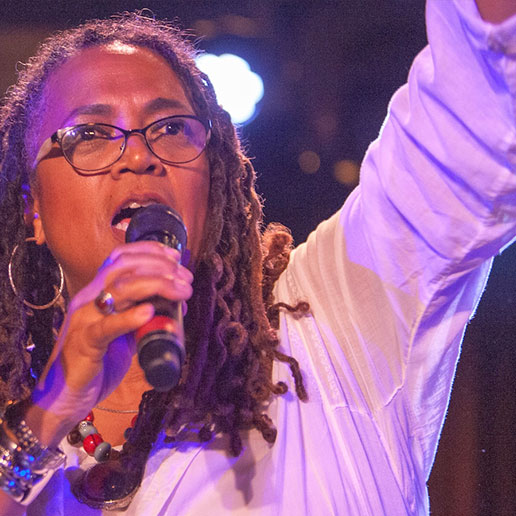
Talks
Afrofuturism in 19th century Black Spirituals
What can 19th century Black spirituals teach us about Afrofuturism? What if we fully embraced the insistence of the spirituals—insisting on humanity, insisting on a divine ethical and moral vision?
Nineteenth century Black spirituals laid the foundations for Afrofuturism as Black people brought God and the battles and heroes of the Old Testament into their history while projecting liberation in the now and future. Through the spirituals Black people insisted on the value of their ways of knowing and ways of expressing life, death, sorrow, and joy.
This talk is made possible in part by the National Endowment for the Humanities (NEH). Any views, findings, conclusions, or recommendations expressed in this presentation do not necessarily represent those of the NEH.
Black Women’s Freedom Practices: 17th to 21st Century
This talk centers four Black women of consequence who affected the American political landscape between the 17th and 21th centuries—Elizabeth Key, Ida B. Wells-Barnett, Fannie Lou Hamer, and Stacy Abrams.
Their experiences highlight how power dynamics of race, gender, sexuality, status, and religion converge in different moments and are shaped by social, political, and historical contexts. At the same time, each woman shows how Black women’s activism has had a profound impact on America’s self-understanding—in social, legal, and political realms.
This talk is made possible in part by the National Endowment for the Humanities (NEH). Any views, findings, conclusions, or recommendations expressed in this presentation do not necessarily represent those of the NEH.
Intentional Community Building: Blackness in Lesbian Musical Culture
Based on reflections from a cultural worker/performer at the Michigan Womyn’s Music Festival, this talk address the commitment to building an intentional community rooted in a lesbian feminist musical and artistic ethos.
This talk provides a glimpse into spaces where lesbians of color negotiate questions about autonomy, coalition work, and intentional community building which inform our notions of civil society, citizenship, and social justice. This talk explores these themes by looking specifically at the evolution of the festival’s theme song, “Amazon”
This talk is made possible in part by the National Endowment for the Humanities (NEH). Any views, findings, conclusions, or recommendations expressed in this presentation do not necessarily represent those of the NEH.
Poet, Writer, Archivist
he/him
Jefferson Navicky is the archivist for the Maine Women Writers Collection. He is the author of four books, most recently Head of Island Beautification for the Rural Outlands (2023) as well as Antique Densities: Modern Parables & Other Experiments on Short Prose (2021), which won the 2022 Maine Literary Award for Poetry.

Talks
The Offshore Islands Belong to Themselves: Ruth Moore & Her Poetry
Ruth Moore was one of Maine’s most beloved 20th century writers. Jefferson’s presentation includes highlights from the Ruth Moore collection at the Maine Women Writers Collection. This talk touches on some of her most well-known books as well as her often-neglected poetry. Jefferson will share a variety of Moore’s poems and invite audience participation.
Elizabeth Coatsworth & Kate Barnes: Processing the Literary Archives of Mother & Daughter
Jefferson Navicky had the rare good fortune of processing the extensive archival papers of Elizabeth Coatsworth, one of the most accomplished children’s book authors and poets of the mid 20th century, as well as the papers of her daughter, Kate Barnes, Maine’s first Poet Laureate.
Together, their papers present an intimate glimpse into the makings of a matriarchal line of Maine writers. Jefferson will speak about his experience processing these collections, as well as present illustrative work from each writer, and provide historical and biographical context.
A Day in the Life of Maine Women: Diaries of Everyday Life
The Maine Women Writers Collection has numerous diaries spanning the 19th and 20th century kept by Maine women across the state whose lives were remarkable in their unremarkableness. In the quotidian passing of their days – from weather to chores to historic moments – the accumulation gives shape and significance to their lives.
By sampling and discussing a selection of these diaries across time, we will all connect with the common struggles and small triumphs of what it’s like to be human and to live day by day.
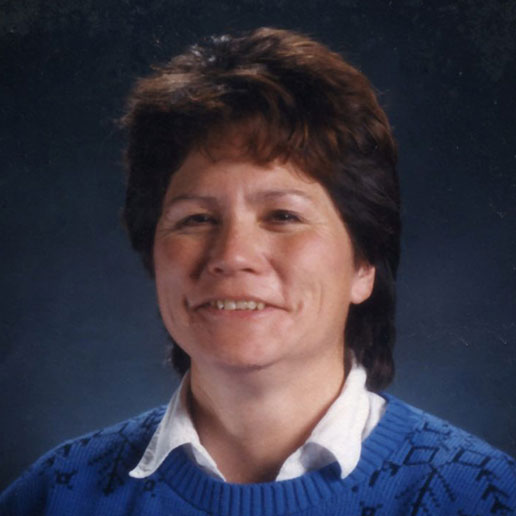
Cultural Historian, Penobscot Nation
she/her
Carol Dana works to preserve, share, and teach Penobscot language and storytelling.
She was born in Bangor in 1952 and attended school on Indian Island until the fifth grade. She later attended college in Machias, got married in 1971, and had her first child in 1972 before moving to New York and working on Akwesasne Notes.
Dana returned to Maine to raise a family on Indian Island and started working on the Penobscot Dictionary in 1982. She currently works in the Cultural Historical Preservation Department for the Penobscot Nation. Available for speaking December – March
Talks
Atlohkewe: Tell Me a Story
Dana has researched 189 stories from the Folger library that were oral tradition stories told in winter. Dana’s talk also features stories from In Indian Tents by Abby Alger, Algonquian Legends of New England by Charles Godfrey Leland, Gluscabe the Liar and other Weird Tales by Horace P. Beck, and Silas T. Rand’s Legends of the Micmacs. Dana is winner of the Maine Humanities Council’s 2022 Constance H. Carlson Public Humanities Prize

